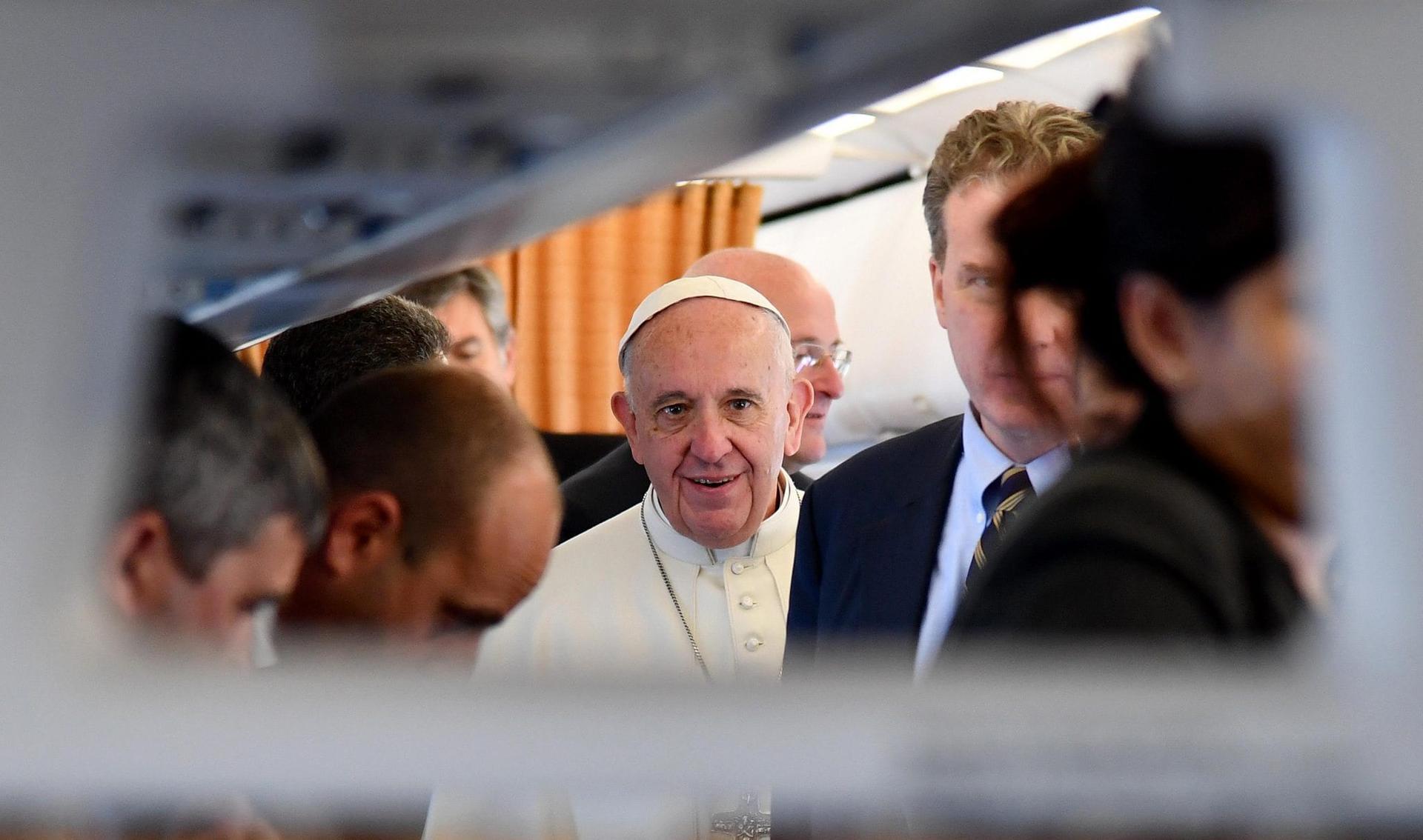ABOARD THE PAPAL PLANE — In considering how many migrants and refugees a country should take, governments should have an “open heart” but also exercise prudence in working out how many it’s capable of integrating, Pope Francis told journalists on his return flight from Sweden Tuesday.
Francis also answered questions on women priests, the Vatican’s role in the Venezuelan crisis, his relationship with evangelicals, as well as secularization.
Responding to a Swedish journalist who asked him about countries which shut their borders to migrants, he said “in theory” a country should never refuse to take refugees, but the obligation was not to only to receive them but to integrate them into society.
He said as an Argentine and South American, he was grateful to Sweden for taking so many exiles fleeing dictatorships, and praised the country for its “long tradition of welcome.”
“It is not human to close the door, it is not human to close hearts,” he said, adding that countries that did so “paid a political price in the long run.”
But he added that “you also pay a political price by a lack of care in calculating how many of those you take can be integrated”, and warned that “ghettoization” — when groups have little contact with other groups — was “dangerous.”
“I believe that the worst adviser that countries which tend to close their borders can have is fear, and the best adviser they can have is prudence,” he said.
On the idea of women priests, Francis reiterated Pope John Paul II’s prohibition, saying that “his final word was clear and this remains.”
Asked by another Swedish journalist if that meant “forever”, he said: “If we read carefully the declaration of St. John Paul II, it goes in that direction, yes.”
Asked about future initiatives with evangelical Protestants, he said that on the eve of Pentecost next year he was planning to speak at a major ecumenical event to celebrate the anniversary of the Charismatic Renewal.
Recalling his initiatives in Buenos Aires, when he preached at large joint gatherings of Catholics and evangelicals, he said the events had done him “much good.”
As pope, he said he had had a number of meetings with American and European evangelical leaders, as well as “visits of reparation” with the Waldensian church in Turin and the evangelical church in Caserta in order to “heal the wound” left by Catholic mistreatment of Protestants in the past.
On the Venezuelan crisis he said both sides had asked the Holy See to intervene, and that the nuncio to Argentina, Archbishop Emil Tscherrig, would represent the Vatican at the negotiating table.
“He favors negotiated dialogue as the only way ahead,” the pope said, adding: “There is no other way. If we had done this in the Middle East, how many lives would we have saved?”
Francis told a French journalist that the periods of greatest loss of religion were those in which the Church was worldliest.
“When faith becomes tepid it is because the Church has become weak,” he said.
But, he said, secularization also reflected a cultural process in which human beings move from being creatures of God to seeking to replace Him.
“In secularization, I think you get, sooner or later, the sin against God the creator — man as self-sufficient,” he said.
He said secularization was not to be confused with what he called a “healthy secularity,” in which science and knowledge have their proper autonomy.
It was important to “take up again” this healthy autonomy in the development of culture and sciences while at the same returning to “a strong evangelization”, he said.
Asked if he planned to come to Germany for any of the Reformation events next year, he said that next year’s trips were still undecided, but India and Bangladesh are all but certain.














